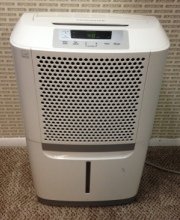Find a Mold Specialist Now
Click or Call, Toll-Free 24/7
mold in bedrooms
Mold in bedroom settings is particularly problematic because, while mold in any room of the home presents a health hazard, people often spend more time in their bedrooms than in any other room. You might spend eight hours in your bedroom at night, every night, while you might only spend an hour or so in the bathroom, another hour or so in the kitchen, and just a few hours in the living room. That means your exposure to mold may be significantly greater if there is mold in your bedroom than in some other room.
Of course, mold is often found in more than one room, since it spreads easily. That only increases your exposure and the risk to your health.
Health Risks Associated with Mold in Bedroom
Being exposed to mold every night while you sleep can lead to numerous health problems, including:
- difficulty breathing
- wheezing
- coughing
- sneezing
- snoring
- trouble sleeping
- runny nose
- sinus congestion
- headaches migraines
- sore throats (which may become chronic)
- itchy, irritated eyes
- conjunctivitis (an eye infection sometimes referred to as pink eye)
- sinus infections (which may become chronic)
- bronchitis
- pneumonia
- asthma attacks
- fatigue
- achy joints
- fevers
- general feeling of malaise
- depression
- itchy rash or hives
Children are particularly susceptible to mold-related health problems. According to the U.S. Centers for Disease Control and Prevention (CDC), exposure to household mold has been linked to the development of asthma in young children and to bleeding in the lungs, which can be fatal, in infants. Children typically spend even more time sleeping in their bedrooms than adults do, so mold the bedrooms of children is of even greater concern.
Elderly people and those with pre-existing lung problems or immune system disorders are also highly susceptible to mold-related illness, although anyone can be affected by exposure to mold. Even pets can get sick due to mold exposure.
Signs You Might Have Mold in Your Bedroom
You may know there is mold in your bedroom because you see it there. However, mold often grows in hard-to-see places where it might grow unnoticed for quite a while, until you have a significant mold problem on your hands.
Some indications that you might have mold in your bedroom include:
- a musty smell in the room (you can learn more about that mold odor here)
- symptoms of mold-related health problems, like those listed above
- significant water damage or flooding has occurred
 Mold on Bedroom Ceiling
Mold on Bedroom CeilingWhere to Look for Mold in Bedroom Areas
If you suspect mold in bedroom areas but aren't sure where it is, here are some places to look. Of course, if you've spotted mold in your bedroom, you should carefully inspect the entire room for additional mold, since mold spreads easily.
Places to look for mold in your bedroom include:
- on and under carpet
- on and under floorboards
- on and inside walls
- on ceilings
- around windows and on windowsills
- inside heating, ventilation and air conditioning ducts
- on mattresses
- on upholstered furniture, such as chairs or sofas
- in attached bathrooms (follow this link to learn more about bathroom mold)
Removing Mold from Bedroom Areas
The specific procedures for removing mold from your bedroom depend upon where in the bedroom mold is growing. Mold should be removed from nonporous surfaces with a low toxicity cleaning product or fungicide. Because it is difficult or impossible to remove mold completely from porous materials like carpet, drywall, insulation inside the walls, mattresses and upholstered furniture, those materials must be carefully removed and replaced.
Safety precautions must be taken while removing mold from bedrooms to avoid spreading the mold to other areas of the home and to avoid increased exposure to mold spores that can cause illness. You can read some mold removal tips here. You can also consult with an experienced mold removal professional for advice, at no cost to you.
Consulting with a Mold Removal Professional
If you need help with mold removal, or if you just want some advice from an expert in the field, we suggest scheduling a free in-home consultation with an experienced mold removal professional. A professional will visit your home, make sure all the mold in your bedroom and other areas of the home has been located, explain the work that needs to be done, and answer all your questions. There's no cost and no obligation. To find qualified mold removal professionals offering free in-home consultations near you, just follow the link.
Return From Mold In Bedroom To Our Causes Of Mold Page
Privacy Policy Terms and Conditions Accessibility Do Not Sell My Information Disclaimer Contact Us




